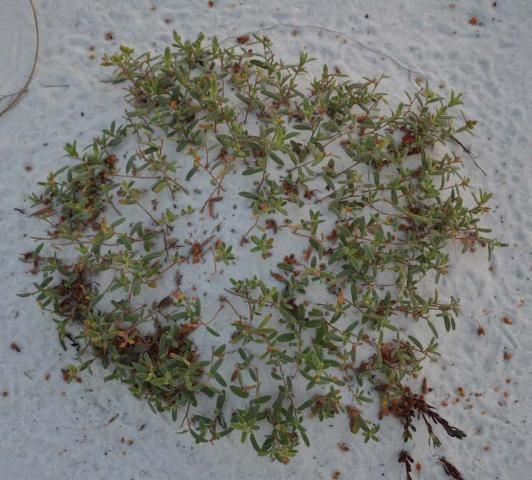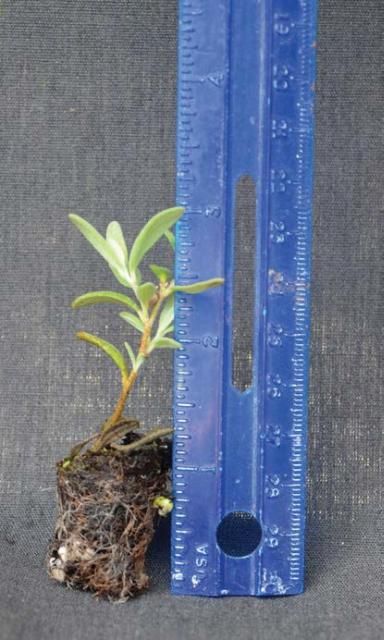Note: This fact sheet is also available as a chapter in a comprehensive manual titled Dune Restoration and Enhancement for the Florida Panhandle, available in pdf form here: https://edis.ifas.ufl.edu/publication/SG156. Please see the manual for more information about other useful and attractive native plants for dunes and for further information about restoration and preservation techniques.
Cistaceae

Coastal sand frostweed is found on beach dunes, scrub, and sandhills. It is endemic to the Florida Panhandle, Mississippi, and Alabama coastal counties. After Hurricane Katrina, coastal sand frostweed became the plant with highest frequency on stable dunes on Horn Island, Mississippi (Lucas and Carter 2013).
General Description
Coastal sand frostweed is an herbaceous, perennial groundcover species. Leaves are alternate and simple, and have pubescence that conceals the leaf surface. Inflorescences are terminal umbellate clusters that occur during spring. Flowers have radial symmetry and are 10 to 20 mm wide with 5 bright yellow petals. Fruits are pubescent twovalved capsules.
Propagation
Apical stem cuttings (6–8 cm) collected in early April from Santa Rosa Island rooted readily under intermittent mist within two weeks in a climate-controlled greenhouse. Rooted cuttings formed complete rootballs in 72-cell flats in less than 7 weeks.

Credit: Gabriel Campbell, UF/IFAS
Mature plants may be divided and potted in a coarse potting mix, but survival with this method has only been 50%. Larger divisions have survived in container production with more success than smaller divisions.
Seed germination information is presently not available for coastal sand frostweed, although the authors found non-scarified seeds don't imbibe water (i.e., seeds are physically dormant). Other Helianthemum species have been reported to have physical dormancy as well (Pérez-García and González- Benito 2006; Thanos 1992).
Outplanting
No published outplanting information is presently available for coastal sand frostweed.
Literature Cited
Lucas, K.L., and G.A. Carter. 2013. "Change in distribution and composition of vegetated habitats on Horn Island, Mississippi, northern Gulf of Mexico, in the initial five years following Hurricane Katrina." Geomorphology 199:129–137.
Pérez-García, F., and M.E. González-Benito. 2006. "Seed germination of five Helianthemum species: Effect of temperature and presowing treatments." Journal of Arid Environments 65:688–693.
Thanos, C.A., K. Georghiou, C. Kadis, and C. Pantazi.1992. "Cistaceae: a plant family with hard seeds." Israel Journal of Botany 41(4–6):251–263.